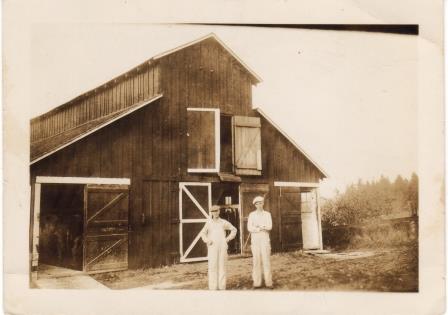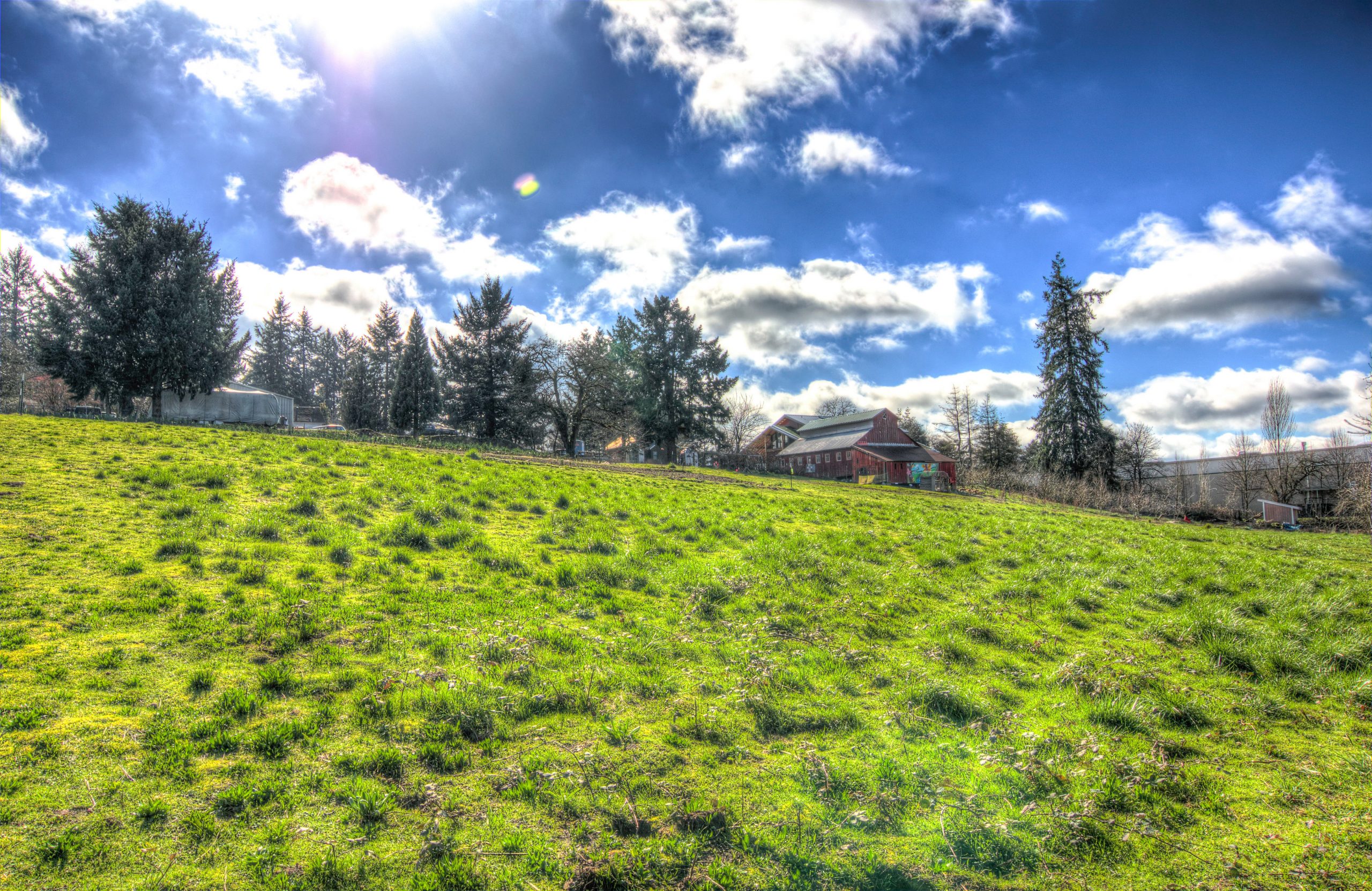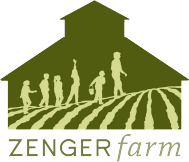Colonizers stole native land in the Pacific Northwest by breaking land treaties, committing horrendous acts of genocide, and forcing Indigenous people onto reservations. The Oregon Trail and subsequently the Donation Land Claim Act of 1850 allowed for a huge influx of white settlers to “claim” millions of acres of land in Oregon for the purpose of building industry, such as with the timber industry in Portland.

Ulrich Zenger Jr. and Sr., part of the Zenger family who purchased the farm in 1905.
Many white settlers came here with a “whites only” clause. A negotiation was made for Oregon to be a “free” state, but only in exchange for states in the Southwestern region to maintain chattel slavery. Black people were systematically barred from even entering Oregon, and were brutally beaten and arrested simply for being within its borders. The Black Exclusion Law language was not formally removed from the Oregon constitution until 1925.
This piece of land and the watershed was claimed by the Johnson family who logged this area. White farmers bought and settled here in 1905 to establish a dairy farm. The land was eventually passed into the ownership of the city of Portland in the 1990’s, and Zenger Farm as an organization began leasing the land in partnership with the Bureau of Environmental Services in an effort to protect the watershed from development, and to provide environmental and sustainable urban agriculture education.
We must also acknowledge the strength and resilience of Native people and of Black people, whose descendants are still here, rising up against the forces of colonization and fighting for liberation everyday. All of this is woven into the story of this land.
We must do our best to honor the original people and their cultural narrative. We must learn what it means to decolonize the way we do this work. Decolonization is an ongoing process. We are committed to offering this land and our resources to Indigenous communities, and are trying to learn how to be in genuine solidarity with intertribal organizations and native tribes. We give thanks to the people, the water, the land, the plants, and all our living relations. We give thanks to Indigenous people, to Black people, and to the movement to reclaim and liberate the land. We hope as a multiracial organization to be able to work side by side towards our collective liberation, with all of our hands reaching for Mother Earth.

To follow our acknowledgement and words with action, we will continue to use the resources we have to prioritize partnerships with native tribes, such as:
- with the Confederated Tribes of the Grande Ronde, to bring the Clackamas and other tribal members to use the wetlands and gardens for food, traditional plant gathering, and for healing.
- NAYA, to offer afterschool community and education space;
- Wisdom of the Elders, to replant native plants, the foods and medicines of this land
*This land acknowledgement is inspired by the words spoken at the beginning of Keaton Otis’ monthly vigil, who was a young Black man murdered by the Portland police in 2010. It is also inspired by the acknowledgement written by Indigenous community members at Friends of Tryon Creek.
